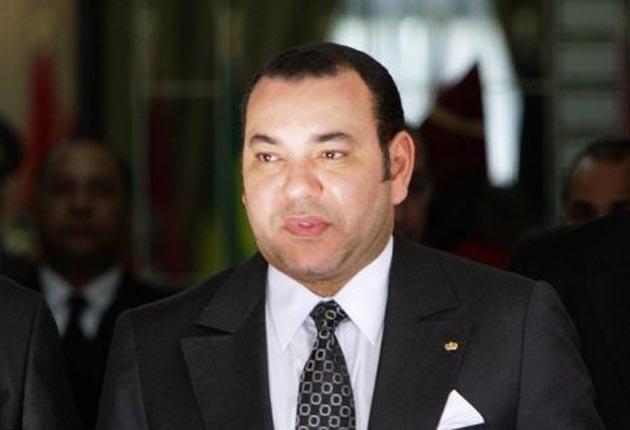Moroccan protesters blockade Spanish enclave

Moroccan demonstrators blockaded the border with the Spanish enclave of Melilla for hours yesterday.
The protest came just a day after the kings of the two countries spoke by telephone to try to calm tempers in a conflict which has been simmering for three weeks.
A police official said protesters prevented all trucks from entering Melilla, interrupting shipments to the centuries-old Spanish city at the tip of North Africa between the Mediterranean and northern Morocco. But 11 trucks carrying fruit and vegetables were allowed over the border in the afternoon, according to Gabriel Escobar, the Interior Ministry's top official in the city.
Mounaim Chaouki, a protest leader, said the blockade will be lifted for the Muslim holy day today and over the weekend but would be ramped up again on Monday to prevent trucks with construction material from crossing, according to El Mundo newspaper.
He said protesters will prevent Moroccan women who work as maids in Melilla from crossing over, the newspaper reported.
Morocco supplies the Spanish enclave with perishable products, and about 35,000 Moroccans cross daily into Melilla to work or shop.
Morocco claims the city and another North African enclave of Spain, Ceuta, as its own — but Spain rejects any talk of giving up the cities. Many Moroccans enter the enclaves by day to work, then go home at night.
The demonstrators manning the blockade yesterday were also pressing Morocco's claim to the cities.
Morocco has made five complaints over the last three weeks alleging Spanish police mistreatment of and racism against Moroccans crossing into Melilla. Moroccan officials also accused the Spanish coast guard of finding, then abandoning, a group of ailing migrants in a boat off the Moroccan coast. Spain has denied the claims.
The Spanish foreign ministry declined comment on the blockade, which started a day after King Juan Carlos of Spain called his Moroccan counterpart Mohammed VI to try to ease tensions.
Spain and Morocco are key allies, cooperating closely on fighting Islamist terrorism and preventing illegal immigration. Relations between the two countries are generally good, despite periodic bouts of tension. The most serious break came in 2002, when the nations edged close to confrontation after a handful of Moroccan soldiers occupied a Spanish island off the Moroccan coast inhabited by goats.
Join our commenting forum
Join thought-provoking conversations, follow other Independent readers and see their replies
Comments
Bookmark popover
Removed from bookmarks